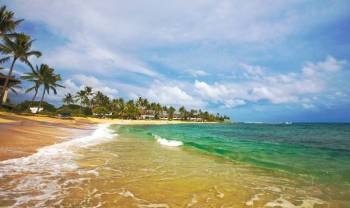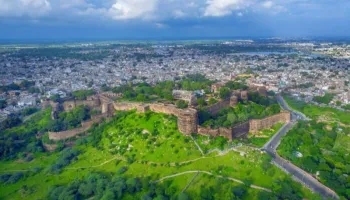
- Packages
- Destination
-
Travel Attraction
By Category
Top Attraction
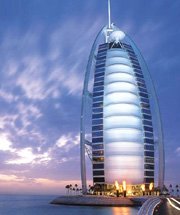
- Agents
- Car Rentals
- Hotels
Ahmedabad

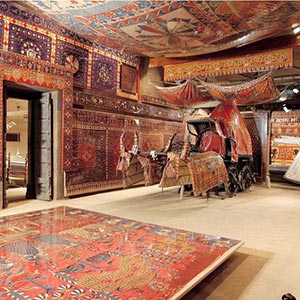
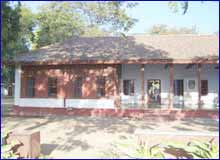
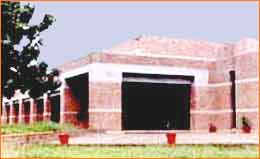
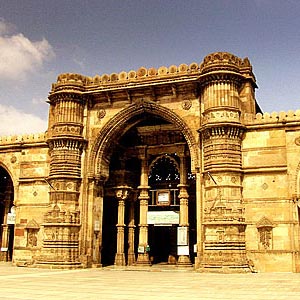
Arrival in Ahmedabad and transfer to hotel
Ahmedabad is Located on the banks of the river Sabarmati, the city was founded by Sultan Ahmad Shah in 1411. Today it is one of the fastest growing cities of India and is an immense repository of tradition, history & culture. Its famous walled area is one of the finest examples of community living & the city thrived as the textile capital & was nicknamed “Manchester of the East’ in 1888. This multicultural city is home to some of the finest Indo-Saracenic mosques & Jain temples. The Sidi Sayed Ni Jaali with its delicately curved branches in a masterpiece carved in stone. The elaborate havelis of wealthy Guajarati Sethias are part of the city’s living heritage. In the early 20th century Ahmedabed grew an important center for nationalist activities after Mahatma Gandhi established two ashrams in the city- the Kochrab Ashram in 1915 and Sabarmati Ashram in 1917.The thriving city has always been the financial capital of Gujarat and after independence; international architects like Louis Kahn and Le Corbusier were commissioned to build modern architectural marvels in the city. While the former built the Indian Institute of Management (IIM) building in brick, le Corbusier designed the Shodhan and Sarabhai Villas, the Sanskar Kendra and the Mill Owner’s Association in stark concrete. Like any other mega-polis, Ahmedabad straddles the ancient and modern with equal poise.
The old city with its narrow, meandering streets is a conglomeration of 600 pols, divided according to caste and occupation. Each pol or family estate is decorated with large gates and sometimes even sub-gates to increase the bond amongst families. There are over 12000 havelies and 100 chabutras or bird feeding platforms and the stately Badshah No Haziro, the resting place of Sultan Ahmed Shah. The ornate jaalis amongst the pillared portico filter the afternoon sun to form remarkable shadows on the marble floor. Behind the mausoleum, is the Great Mosque or the Jami Masjid built in 1423 by the Sultan Ahmed Shah I.
During the sight seeing tour one can visit The Calico Museum with a prior permission from museum authority. The Calico Museum of Textiles, inaugurated in 1949, is today justly regarded as one among the foremost textiles museums in the world and an important India institution. Its outstanding collection of Indian Fabrics exemplifies handicraft textiles spanning five centuries and attracts increasing numbers of Indians and international research scholars. Most significant, it has become a major reference area for our surviving handicraftsmen and also for the India machine-textile industry. The museum encompasses too large an area its energies on the vast and vital field of handicraft textiles, devoting less and less time to industrial fabrics.
The museum conducts 02 hours guided tour everyday, except Wednesdays and public holidays at 10:30 Hrs. to 12:30 Hrs. Rights of admission to the Museum and the Galleries are reserved by the Management.(NO ENTRYAFTER 10:45 am)
Afternoon -visit Gandhi Ashram, Shreyas Folk & Art Museum, and Institute of Indology.
Gandhi Ashram: On a quiet peaceful stretch of the Sabarmati River, Mahatma Gandhi set up a simple retreat in 1915 A.D. This was his Satyagrah Ashram and for many years it was the nerve centre of India’s freedom movement. It was from here, in 1930 A.D, that Mahatma began his historic Dandi March to the sea to protest against the Salt Tax imposed by the British. Hridaya Kunj, the simple cottage where he lived, is now a national monument and preserved as it was during the Mahatma’s life-time.
Shreyas Folk Museum is an educational museum exhibiting folk arts and crafts of Gujarat. It is located 2.5km west of Sabarmati on the outskirts of Ahmedabad district. As the name suggests, the exhibits at the museum include art, craft, textile and clothing, coins, weapons, toys, costumes, masks, puppets and musical instruments. One of the highlights at this museum is a complete elephant skeleton (3.19 m high). The museum is open from 10:30 am to 1:30 pm and from 2:00 pm to 5:30 pm on all days except Mondays and public holidays. Photography is not permitted and visitors are charged a modest fee.
Institute Of Indology: The Institute contains some of the fine collections of Jainism, illustrated manuscripts and miniatures. The museum is open from 10:30 am to 1:30 pm and from 2:00 pm to 5:30 pm on all days except Mondays and public holidays. Photography is not permitted.
Evening Market at Law Garden displays beautiful textile handicrafts of Gujarat. Vishalla is a restaurant with traditional Gujarati food in village surroundings. It has Vichar Utensil Museum worth visiting. The museum houses a unique collection of utensils.
Overnight stay at Ahmedabad.
Activities : Heritage
Ahmedabad - Bhuj (450 km 09 hrs)
After breakfast, drive to Bhuj. Arrive at Bhuj and check in at the hotel.
BHUJ: The historic city of Bhuj derives its name from the Bhujiyo Dungar, a hill, overlooking the present day Bhuj town. Bhuj is a typical example of a desert town located between two geographical features - Bujiyo Dungar on the east & Hamirsar lake on the west.
Overnight stay at Bhuj.
Activities : Heritage
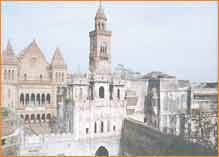
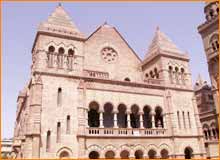
After Breakafst a full day tour of Bhuj and Mandvi.At Bhuj Visit Aaina Mahal: It was constucted by Rao Lakhpatji (1707-61 A.D.) in 1750 A.D., who was a great patron of art, architecture, music & literature. Aaina Mahal is a unique example of an Indian palace built in the mid-eighteenth century with European influence.
Prag Mahal: Rao Pragmalji II (1838-76 A.D.) undertook the construction of Prag Mahal and appointed the famous architect – Colonel Henry Saint Wilkins to design it. Constructed in the Italian Gothic style, it has a large Darbar Hall, big rooms, wide verandahs & a 45 meter high lofty bell tower. It was built using the various type of stones available in Kutch region. This is a fine example of Indian craftmanship combined with European architectural design.
The Kutch Museum: Formerly known as the Fergusson Museum, was founded by Maharao Khengarji III in 1877 AD. Its the oldest museum in Gujarat. Constructed in the Italian style, the museum is located in picturesque surroundings on the bank of Hamirsar Lake. The museum has been a center of attraction for scholars due to its large collection of Kshatrapa inscriptions, curious archaeoligical objects, fine collection of arms & specimens of various crafts of Kutch region. Other places of interest at Bhuj are- Cenotaphs of Kutch rulers, Snake Temple at Bhujiyo Hill Fort, Swaminarayan temple, Vegetable market, Hatkeshwar temple & Alfred High School
After lunch drive to Mandvi. Mandvi is located on the banks of the Rukmavati River, barely one km from the Arabian Sea at the Gulf of Kutch. The town has a very pleasant climate throughout the year and it was a summer retreat of the Kutch Maharaos. The centre of attraction at Mandvi is the Vijay Vilas Palace, a royal abode set in the middle of well-laid gardens with water channels and marble fountains. The architect and craftsmen from Jaipur designed and constructed the palace in 1920 AD. The palace has all the elements of Rajput architecture and draws largely on the plan of palaces of Orchha and Datia. The central high dome on the pillars, the Bengal domes on sides, the windows with colored glass, carved stone Jaali, domed bastions at the corners, extended porch and other exquisitely stone carved elements, make the palace worth a visit. It owns a private beach, maintained in an eco-friendly manner to preserve its pristine beauty. It is an example of the traditional skill of craftsmanship of early 20 century.
Visit Ship building yard. On the banks of the Rukmavati River, just south of the bridge, you can visit the still-active shipbuilding yard. Craftsmen still assemble ships out of wood, for local or international guests, and you can feel free to watch them work.It is gives a apportunity its watch handmade ship being built which will make one truly appreciate craftmanship. The process is long and elaborate and shoddy workmanship means risking sailors’ lives. Boards painstakingly crafted, planed and fitted by hand, for a watertight fit along the long curves of the hull line will likely encounter legions of craftsmen working hard amidst giant piles of sawdust. Also, because of the shipbuilding industry, there is a heavy timber trade in Mandvi.
Mandvi has some very beautiful houses belonging to rich merchants. Their architectural style reflects the fusion of Indian & European styles of architecture. The Swaminarayan temple is also one such example
with it’s brightly painted exterior and elaborate plaster decorations. Other interesting buildings are a girls’ high school (a former palace) built by Rao Lakhpat (1741-60 AD) and a light house. This old palace is a replica of the Aaina Mahal of Bhuj, with intricate stone carvings. There is a wind farm on a picturesque beach nearby.
Overnight stay at Bhuj.
Activities : Heritage
Bhuj - Full Day Excursion To Banni Villages
After Breakfast proceed for full day excursion tour to Banni Region. Amidst the Desert land of infinite dimensions, are suspended, quaint little villages. These are the last villages on the India-Pakistan border. Here you will come across master craft people’ exposing their traditional art, turning out master pieces every day. Their ornaments, clothes, utensils, everything they use -will make you feel as if you have stepped into lifestyle museum leaving you spellbound. Banni Embroidery of Kutch This needle work derived its name from the semi-desert areas called Banni in the Kutch district. It is a long tract of 2,144 Sq. Km. where 44 villages form hamlets (Vandhs) People in this area are engaged in tertiary occupations like embroidery, leather work, dairy and other cottage industries. Banni embroidery is locally known as “Kutch Bharat” Khambira, Kharek, Kodi, Kacho Bharat Fako, Bharat etc are main stitches used in this area. The work is known for minute designs Gorgeous colors embroidered articles are closely associated with their day to day needs.
The grasslands of Banni are scattered with villages of pastoral groups. As the women of these groups do embroidery for their personal use and a supplementary income, this is one of the highest concentration areas of craftswomen in the world.
Khavda (85 Km.) – a Small village, One can visit to Khatrivas to see artisans printing & selling Ajrakh. The town also has skilled Leather Craftsmen and there are some shops retailing local crafts, including Leather Slippers. Off the main road is a clinic run by Kutch Mahila Vikas Sangathan (KMVS), Federation of Kutchi Women’s groups.
Ludia Village is comprised of several hamlets belonging to the Meghwal & Samma Communities. The latter community, primarily herdsmen, is more conservative when it comes to tourists. Gandhi nu Gam, populated by the Meghwal community, features beautifully Painted Bhungas .The Kanjari (Blouses) of the women and the Bhunga decoration of this village are especially colorful.
To curb exploitation & experiment with community marketing, the hamlet has set up an “Otlo” or a roofed platform next to the Temple, where each household brings out their embroidered goods for selling.
Drive to Hodka. Take typical Kutchi Lunch at Shaame-e-Sarhad Village Resort. Hodka – a cultural village is located in the Banni Grassland, right on the edge of the great Salt Desert – the Rann. The name Hodka is derived from the Gujarati word “Hodi” meaning Boat, as the shape of the Jheel is believed to be in the shape of a Boat. It is believed to have been set up by the Halepotra clan. ‘Halepotra’ literally means the ‘Son or the descendant of Halaji’, who is believed to have immigrated from Sindh. The village is now a part of National project. The village is famous for its craft like Decorative Mirrors, Lamps, Hand Fans, Letter Boxes, Wall Hanging, Lather, Clay, Wood, Metal, Mud Work and especially the exquisite Silver Jewellery. The artisans sell their goods directly from their artistic Huts.
Visit the Bhirandiyara – is a favorite Tea stop for locals and visitors alike on the road to Khavda. The village boasts of a delicious sweet – fresh Maavo. This milk-based sweet is best when eaten hot. Most of the roadside stalls sell Maavo. The local Meghwal Community has exquisite embroideries and skillfully decorated, colorful Mud Bhungas.
Mud-Mirror work – Lippan kam is a decorative art done by common people mainly women. Lippan kam is done inside bhungas / mud huts in villages of Kutch; sometimes you can find it on outer walls too. Generally
women make birds, trees, animals, and peacock, human figures etc in lippan kam.It is done with a mixture of clay and camel dung. Then gum is used to stick mirrors. Originality of lippan kam lies in adding no color or only whites. Small round, diamond-shaped or triangle mirror pieces are essential to lippan kam NOTE : This is to bring your kind notice that all the tourists visiting Bhuj / Kutch area are required to Obtain
the permit from the Police Office for the interior Kutch visit the villages north of Kutch, including Khavda, Bhirandiara and Dumaro,
Overnight stay at Bhuj .
Activities : Heritage
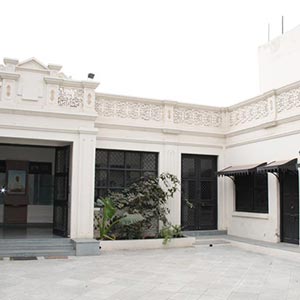
In the morning, after breakfast drive to Rajkot. Rajkot is a very pleasant provincial town. Mahatma Gandhi spent a few years of his life in this town. His father was the Dewan (Chief Minister) of Rajkot, once a small princely State.
In the evening arrive Rajkot and visit Kaba Gandhi No Delo (literally “Kaba Gandhi’s house”). Mahatma Gandhi spent the early days of his life here. You can see the exhibition of Gandhi’s items here.
This will be followed by a visit to Rajkumar College. Mahatma Gandhi completed his secondary education from this school.
After lunch drive to Gondal.
Gondal: The Riverside palace at Gondal, a Govt. of India classified heritage hotel, and the Orchard Palace in the same town, are two mansion guest houses opened as heritage hotels. The interiors of these properties are equipped with period furniture, antiques and artifacts remniscent of the days of the Raj. The highlight of staying at these properties is that guests can see the Royal Garages, housing vintage & classic cars, and the Naulakha Palace, which is a festival of stone carvings & houses royal memorabilia
including toys of the late 19 & early 20 century, silver caskets that carried messages & gifts for the Maharaja, elephant howdahs & royal portaits. It has a royal saloon suite, which has its own drawing, dining, bedroom & bathroom in a converted railway carriage.
Overnight stay at Gondal.
Activities : Heritage
Gondal - Junagadh (70 km) Sasan Gir
After breakfast drive to Junagadh.Junagadh is situated in the Saurashtra region at the foot of the temple- studded Mount Girnar, on the northern fringes of the Gir forest. The city takes its name from the fort that enclosed the medieval town. Visit Forts, Ashoka Rock Edicts and Maqbara.
Continue Drive to Sasan Gir.Sasan Gir, Popularly known as Gir, the most famous loin sanctuary in India. And the one place in the subcontinent where Asiatic Loins can be found in the wild. Sasan Gir on the southwestern border of Surasthtra peninsula in Gujarat and is home to nearly 400 Asiatic loins. The Sanctuary was created in 1913 to provide protections to the largest surviving groups of the Asiatic loins and was given the status of the sanctuary in 1965; the numbers of loins has been steadily on the rise since 1980.This is the only place in the World outside the African continent where the loin can be seen in its natural habitat. The loin safaris are popular among tourist & jeep are freely available for touring the forest. Though the most famous inhabitants of the park are Asiatic loins .It is also provides natural habitat to a lot of other species like chital, chinkara (Gazelle) four horned antelope. Leopard, nilgai, spotted deer, wild boar, wild ass, monkeys, parrots and peacocks, many others birds etc.
1430hrs: Evening Game Drive
Evening game drive in exclusive Gypsy into the Park where your naturalist will talk to you about the wildlife found in this Park. And if you are lucky you will spot the Loin1800 hrs: Return to the Hotel.
Overnight stay at Hotel.
Activities : Heritage
Sasan Gir
0630 hrs: Early morning game drive.
Early morning Game Drive in exclusive Gypsy into the Park where your naturalist will talk to you about the wildlife found in this Park. 1000 hrs: Return to the Hotel. 1030 hrs; after the adventurous drive enjoy the sumptuous breakfast
1430hrs: Evening Game Drive Evening game drive in exclusive Gypsy into the Park where your naturalist will talk to you about the wildlife found in this Park. And if you are lucky you will spot the Loin1800 hrs: Return to the Hotel Overnight stay at Hotel.
Activities : Heritage
Sasan Gir - Somnath - Diu (150 km)
After breakfast drive to visit the Somnath temple (50 km). This temple is one of the twelve most sacred shrines dedicated to Lord Shiva and a Jyotirlinga. According to the legend, Somnath temple was built originally in gold by Somraj, the moon god. This Somnath temple was rebuilt and destroyed seven times till 1706 A.D when it was destroyed by the Mughal emperor Aurangzeb. After that it was finally rebuilt in 1950 with the support of Sardar Vallabhabhai Patel. After visiting the Somnath temple we drive to Diu. Diu is a tiny island in the Arabian Sea which is situated near the port of Veraval in Gujarat and is separated from the southern extremity of the Saurashtra peninsula by a narrow channel running through the swamp. Diu is a sensuous blend of sun, sand and deep blue sea.
Day free for leisure at Nagoa beach. The beach is exceptionally beautiful & quiet and is in the shape of a horse-shoe (semi circular).
Overnight stay at Hotel.
Activities : Heritage
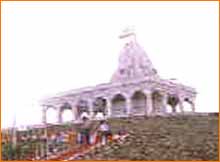
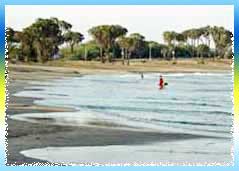
After breakfast, a full day tour to monuments and beaches of Diu.
St.Paul’s church: The Church adorned with curiously treated volutes & shell-like motifs and the
magnificent wood carving is considered to be the most elaborate of all the Portuguese churches in India. St.Thomas Church Museum: A huge edifice in gothic architecture was built in 1598 A.D. A part of it has been converted into a museum, an Archeological treasure house.
Diu Fort: This majestic structure stands on the coast of Diu sentinel. Once inside, you are overwhelmed by the gaunt majesty of the ancient stone work which transports you to a bygone era of gallant, where time stands still. The fort offers a kaleidoscopic view of Diu town.
Nagoa beach: The Nagoa beach is exceptionally beautiful & secluded. The horse-shoe (semicircular) shaped, palm-fringed beach is twenty minutes invigorating drive from Diu.
Today we will drive to Palitana. Palitana is the gateway to the Shatrunjaya hill and one of the holiest pilgrimage sites for Jains. There are about 863 temples on the top of the hill, exquisitely carved in marble and built over a span of 900 years. After reaching the top of the hill we will visit the Jain temple. The temple which is dedicated to Shri Adishwara, the first Jain Tirthankara (apostle) is one of the most magnificent temples and the most sacred temple on Shatrunjaya hill. After visiting the temple we will visit the Chaumukha or the four faced temple. It has an image of Adinath facing out in the four cardinal directions
Evening drive to Bhavnagar. Bhavnagar lies in the southeast corner of the Kathiawar peninsula in the Saurashtra plains. Once the capital of a princely state, Bhavnagar is home to several lakes and temples. Visit the Takhteshwar Temple and Gandhi Smriti Museum.Takhteshwar temple is located on a small hillock and provide good views over the city and out into the Gulf of Cambay. Gandhi Smriti Museum is located northeast, by the clock tower and has a good collection of Gandhi memorabilia. In the evening we visit the bazaar in Bhavnagar.
Overnight stay at Bhavnagar.
Activities : Heritage
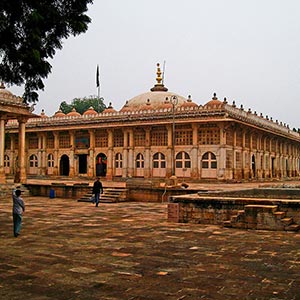
Today, after breakfast do an excursion to Lothal & Sarkhej Roza.
Lothal: A perfect place to get an insight of the Indus Valley civilization. The most dominating site at Lothal is the massive dockyard spanning an area of 37 meters by 22 meters perhaps the greatest work of Maritime Architecture. Lothal was also famous for its arterial streets, microbes of gold, ivory and coppersmiths’ workshops, potteries and underground sanitary drainage. It is located at a distance of 78 kms from Ahmedabad. (Closed on Fridays).
Sarkhej Roza: Is about 8 kilometres away from the city, Sarkhej Roza comprises one of the most elegant architectural complexes of Ahmedabad. Grouped around a great stepped tank is the tomb of the saint, Ahmed Khattu Ganj Baksh (1445), the mosque (1451), the tombs of Muhammad Shah Begada and his queen, the palace and pavilions.
Overnight stay at Ahmedabad
Activities : Heritage
Ahmedabad - Modhera - Patan - Adalaj Stepwell - Ahmedabad
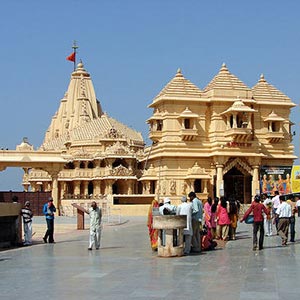

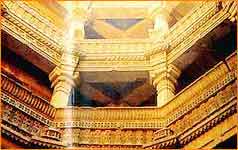
Today morning, drive for an excursion visit to architectural beauty of Sun temple at Modhera(102 km from Ahmedabad), Rani-ki-vav at Patan(127 km from Ahmedabad) & a beautiful stepwell at Adalaj. Modhera: The Sun temple of Modhera is one of the finest examples of Indian architecture of its period. Built in 1026 A.D. the temple is dedicated to the Sun-God, Surya and stands high on a plinth overlooking a deep stone-steeped tank. Every inch of the edifice, both inside and outside is magnificently carved with Gods and Goddesses, birds, beasts and flowers. Sun Temple of Modhera was built by King Bhimdev I (1026-27) and bears some resemblance to the later and far better known, Sun Temple of Konark in the state of Orissa, which it predates by some 200 years. Like that temple, it was designed so that the dawn sun shone on the image of Surya, the sun God, at the time of the equinoxes. The main hall and shrine are reached through a pillared porch and the temple exterior is intricately and delicately carved. As with the temple of Somnath, this fine temple was ruined by Mahumad of Ghazni.
Patan: Home of the famous patola silk saris, Patan is a beautiful old town with Jain temples and carved wooden houses. Rani ki vav (step well) is an excellent example of subterranean architecture of Gujarat. The exclusively carved side walls, pillars, beams, series of steps & platforms lead to the elaborately carved water well. Every surface is adorned with finelly chiseled sculptures of maidens & Hindu deities, religious motifs & geometrical patterns. Rani ki Vav represents the finest of the Indian sculptures and architecture.
Adalaj Step-well: Situated 17 km north of Ahmedabad, this step well at the village of Adalaj is another fine example of magnificent architectural form. ‘Adalaj Vav’ is richly carved. Every pillar and wall surface is covered with leaves, flowers, birds, fishes and friezes of ornamental designs.
Overnight stay at Ahmedabad.
After breakfast drive to Airport to board flight for your next destination.
Activities : Heritage
* Some Advance Percentage of total booking amount * Airfare/Transport fare to be paid full at one time in advance.
* Upon cancellation, refund will be made after deducting the Retention Amount. * Retention Amount varies as per the number of days left before your package start date.
Jasani Tourism is One of the Promising and Top-notch Tour and Travel Companies in Gujarat, India. We have Made Our Mark in Offering Personalized Domestic and International Tour for Our Travelers, Who have Great Love to Travel Across Diverse Locations Know more..
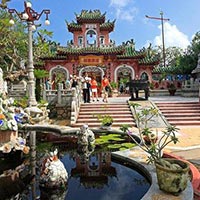
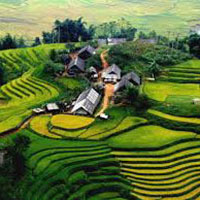
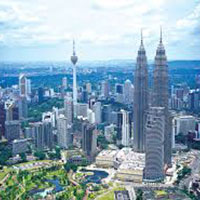
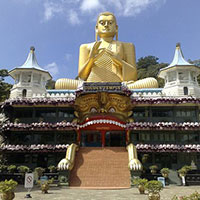
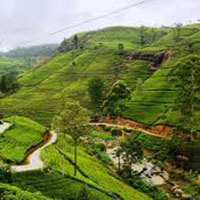
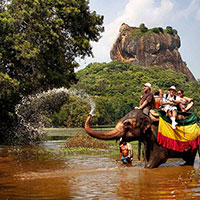
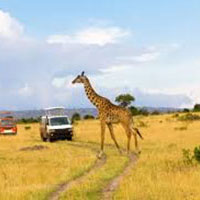
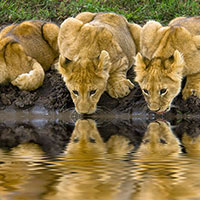
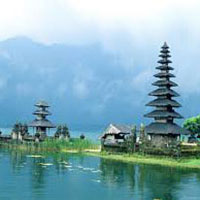
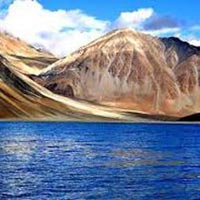
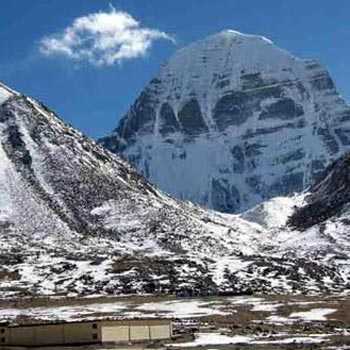
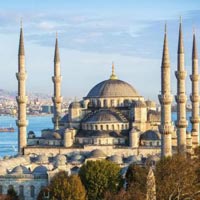
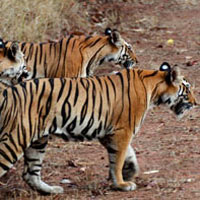
Bhopal - Pachmarhi - Jabalpur - Gwalior - Chhatarpur - Tikamgarh - Umaria
11 Days / 10 Nights
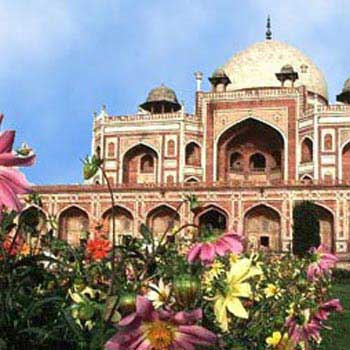
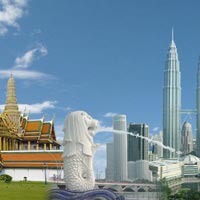
Fascinating Far East (Singapore, Thailand & Malaysia) Package
Singapore - Kuala Lumpur - Bangkok
11 Days / 10 Nights
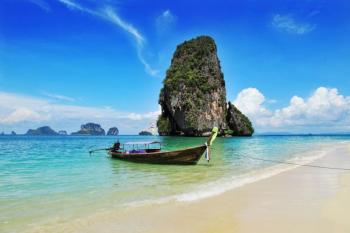
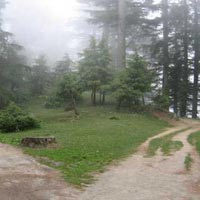
Shimla - Manali - Dharamshala - Dalhousie - Chandigarh
11 Days / 10 Nights
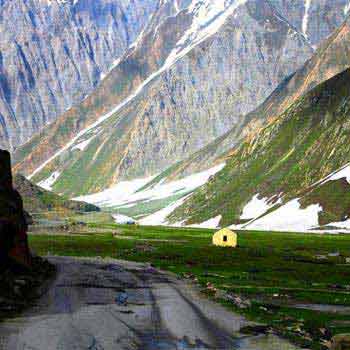
Jammu - Anantnag - Srinagar - Ganderbal - Baramulla
11 Days / 10 Nights
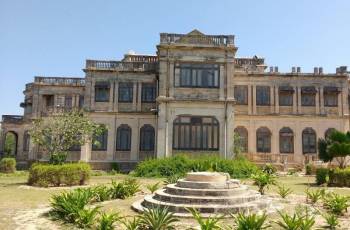
Gujarat Tour Package 9 Night - 10 Days
Ahmedabad - Junagadh - Porbandar - Rajkot - Dwarka - Somnath
10 Days / 9 Nights
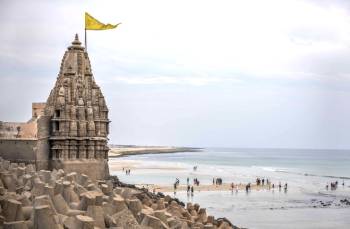
Gujarat Tour Package 9 Night - 10 Days
Junagadh - Rajkot - Vadodara (Baroda) - Dwarka - Somnath - Diu
10 Days / 9 Nights
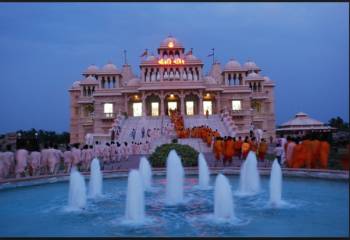
10 Days Gujarat Tour From Ahmedabad
Ahmedabad - Junagadh - Porbandar - Rajkot - Dwarka - Somnath
10 Days / 9 Nights
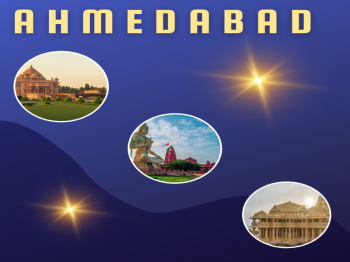
06 Nights / 07 Days - Ahmedabad Tour Package
Ahmedabad - Vadodara (Baroda) - Somnath - Dwarka - Narmada
7 Days / 6 Nights
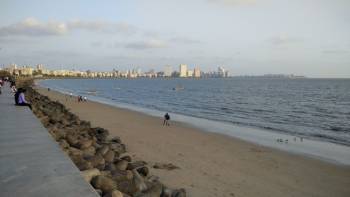
8 Night - 9 Days Gujarat Tour Package
Ahmedabad - Junagadh - Porbandar - Vadodara (Baroda) - Dwarka - Somnath - Narmada
9 Days / 8 Nights
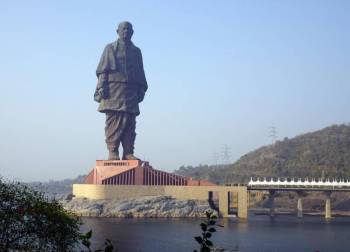
8 Night 9 Days Gujarat Tour Package - 2
Bhuj - Vadodara (Baroda) - Dwarka - Somnath - Diu - Narmada
9 Days / 8 Nights
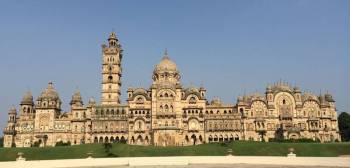
Gujarat Tour Package 7 Night - 8 Days
Ahmedabad - Junagadh - Rajkot - Vadodara (Baroda) - Narmada
8 Days / 7 Nights
